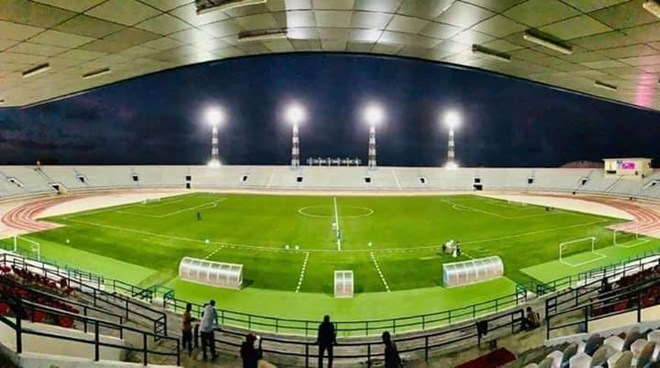
Source: AFP, Wednesday July 1, 2020

Somalia’s president on Tuesday officially reopened the country’s renovated national stadium, which saw its first football match in 17 years, after serving as a base for Al-Shabaab and later, African Union peacekeeping troops.
President Mohamed Abdullahi Farmajo, wearing a mask and dressed in a pale blue tracksuit, cut the ribbon and took a few shots at the goal, leaving before a friendly match between two national sides.
This is part of celebrations of Somalia’s 60th anniversary of independence from Italy, which will be marked on Wednesday.
“Thanks to the president who reopened the national stadium today on the commemoration of the 60th anniversary of independence, there will be a football game between two national teams,” Sports Minister Khadija Mohamed Diriye told reporters.
Apart from a few dozen special guests and government officials, the stadium remained empty as the event was closed to the public.
“This was an opening occasion where a limited number of people were invited,” said police officer Mohamed Hassan.
He said security was tight, with most roads leading to the stadium closed to civilian transport.
African Union peacekeepers (AMISOM) from Uganda had been stationed in the stadium since 2011, after they chased out the al-Qaeda linked Al-Shabaab Islamists from the capital, who had banned all sporting events in the capital and had made the stadium their base since 2008.
It had fallen into a state of disrepair, overrun with weeds and its walls peppered with bullet holes testifying to the violence which has ravaged the city over the past 30 years.
The stadium was handed back to the government in August 2018 and was renovated with funding from Norway and the European Union.
According to government sources, more than $2 million was spent in the first phase of renovation, which took in the football pitch, running track and spectator seating.
Somalia plunged into chaos after the 1991 overthrow of president Siad Barre’s military regime, leading to years of clan warfare followed by the rise of Al-Shabaab which once controlled large parts of the country and capital.
After being pushed out of their main bastions by AMISOM, Al-Shabaab has continued to wage war against the government, with regular attacks in Mogadishu and against neighbouring countries which have contributed to the force.
